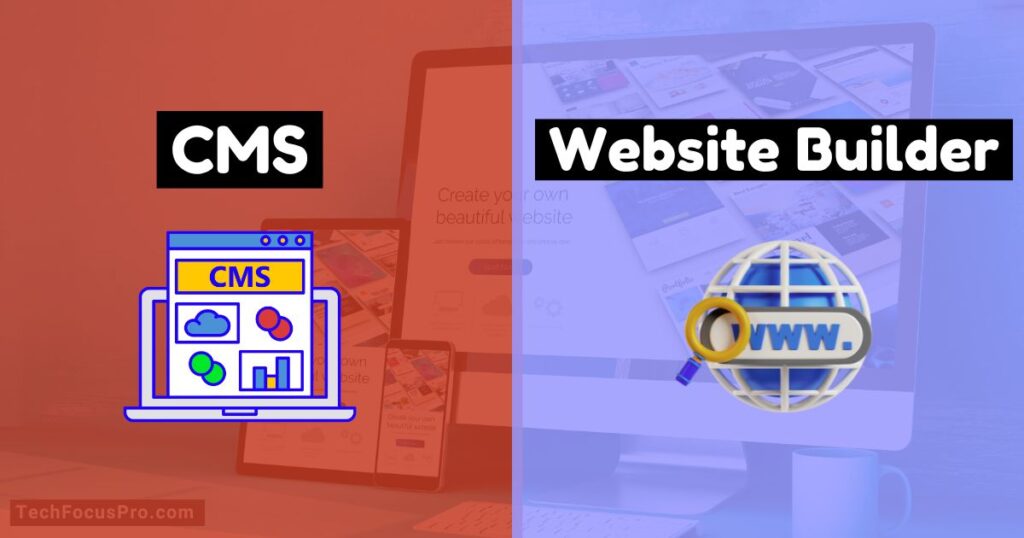Best Guide to Choosing the Right Web Hosting for Your Business

Because every website needs web hosting to go live, choosing the finest web hosting is crucial to maximizing performance. Making a decision might be difficult because there are more than 260 web hosts worldwide, each with different features, pricing plans, support, and goods. We’ll walk you through five easy steps to help you choose the best hosting company for your website. This post will review recommended practices and considerations for selecting a web host.
After reading this post, you should be able to select the best web host for your website.
It’s important to comprehend the various kinds of web hosting offered before committing to a certain hosting company or package. Each kind caters to different types of websites and has distinct uses.
Shared Hosting
The most popular and reasonably priced kind of web hosting is shared hosting. Under this approach, several websites share a server’s CPU, RAM, and bandwidth. It is an excellent option for personal blogs and small businesses because it is simple to use and reasonably priced. Because shared hosting is so inexpensive and simple to use, it’s a great place to start if you are searching for a cheap web host in India.
Virtual Private Server (VPS) Hosting

A compromise between dedicated and shared server hosting is offered by VPS hosting. A physical server is divided into several virtual servers, each with its own resources. Compared to shared hosting, this hosting provides more control and better performance.
Dedicated Hosting
With dedicated hosting, a whole server is all yours for your website. Large businesses that need maximum performance, improved security, and complete control over server settings should choose this option.
Cloud Hosting
Cloud hosting ensures high availability and scalability by using numerous servers to host websites. Because the cloud-based method distributes resource utilization across a network of servers, it offers exceptional performance and dependability.
Reseller Hosting
Reseller hosting allows individuals and companies to buy hosting space and resell it to others. It’s a great choice for business owners wishing to launch their own hosting company or for web designers wanting to provide hosting services to customers.
“Web hosting server is the lifeline of every website. It should be up and running 24/7.”
– Dr. Chris Dayagdag
Comparing Web Hosting Types
When choosing a web hosting type, it’s important to consider what makes each unique. Let’s break down the pros and cons of each type, as well as their best use cases.
Pros and Cons of Each Hosting Type
Shared Hosting:
- Pros: It’s cost-effective and easy to set up, making it a great choice for beginners. The host handles the maintenance, so you don’t need technical skills.
- Cons: Because resources are shared with other users, your website might slow down during high-traffic times. It offers less security and customization than other options.
VPS Hosting:
- Pros: Offers more control and resources than shared hosting while still being affordable. Your site has its own space, providing better performance.
- Cons: More expensive than shared hosting and requires some technical knowledge to manage.
Dedicated Hosting:
- Pros: You get an entire server just for your website, offering top-notch performance and security. It’s customizable to fit specific needs.
- The cons are that it’s the most expensive option and requires technical skills to maintain. It’s best for sites with a lot of traffic.
Cloud Hosting:
- Pros: Highly flexible and scalable, you can easily adjust resources as your site grows or during peak traffic. Often provides good uptime and reliability.
- Cons: Costs can be higher than shared hosting and may fluctuate based on usage. It can be complex to manage without technical expertise.
Best Use Cases for Each Hosting Option
- Shared Hosting for Small Businesses: This is perfect for small businesses or personal websites with low traffic, such as blogs or portfolio sites. It’s a budget-friendly starting point.
- VPS for Medium-Sized Enterprises: Medium-sized businesses that expect moderate traffic and need better performance should consider VPS. It’s ideal for online stores and more prominent blogs.
- Dedicated Hosting for Large Businesses: Ideal for large companies or websites with high traffic that need superior speed, security, and customization. Examples include big eCommerce sites and enterprise websites.
- Cloud Hosting for Flexibility and Scalability: Best for businesses anticipating rapid growth or unpredictable traffic levels, such as tech startups or websites with varying needs. Cloud hosting adapts to your requirements without downtime.
Key Factors to Consider When Choosing Web Hosting
CMS vs. Website Builder

Website builders and content management systems (CMSs) are only two of the many platforms the best web hosts support with their hosting services. Building a successful website requires careful consideration of the platform to be used.
A content management system (CMS) can assist you in creating websites from the ground up, but it has a learning curve. With this option, you will want some technical know-how to manage technical duties, such as security and speed optimization. The three most widely used CMS platforms are Drupal, Joomla, and WordPress.
If you are set on using a particular CMS, choose a web hosting solution tailored to the platform, such as managed WordPress hosting or Joomla web host. Several web hosting solutions additionally include an auto-installer to rapidly activate the CMS of your choice.
Storage and Bandwidth
Consider the bandwidth and storage that a web host provides when choosing one. Storage is the term for the area on the server where the files and data for the website, including pictures and videos, are kept.
The amount of storage you need depends on the type of website you have and the content on it. For instance, Hostinger’s Premium hosting plan, suitable for small-to-medium-sized businesses, blogs, and individual websites, comes with 100 GB of SSD storage. On the other hand, bandwidth is the most data a website can send in a predetermined amount of time—typically once a month.
There are two types of bandwidth:
Metered: Establishes a monthly cap on the volume of visitors the website can receive. If traffic hits that level, visitors might be unable to access your website.
Unmetered: There won’t be monthly data transfer restrictions; the hosting provider will only set the server’s capacity.
Speed and Optimization

Selecting a web host that provides exceptional speed and optimization tools can help improve your website’s functionality. First, obtain a hosting service with a quick web server. Hostinger, for instance, uses the Lite Speed Web Server, which has a sophisticated caching engine. Compressing cache files rather than generating new requests simultaneously speeds up web pages.
Server locations also influence site speed. While locating your website near your host’s server can help speed up loading times, it’s advisable to choose a web provider with several server locations.
Security
Protecting private information on your website from hostile attacks requires security. Regarding security, consider the following factors: Access Management: A reliable supplier should supply a strong and secure system to restrict administrator and user privileges. Furthermore, only approved IP addresses should be used for back-end operations.
Certificates: The security mechanism known as Secure Sockets Layer (SSL) encrypts the communication between a web server and a browser. It keeps unauthorized parties from viewing or altering the sent data. To secure your website, look for a web host with a free SSL certificate.
Firewalls: A web server should have several tiers of firewalls to monitor traffic, identify malware, and defend sensitive data from DDoS attacks.
Network Monitoring: For maximum server security, a reputable hosting company monitors its network for questionable activity and routinely updates the hardware and software on its servers.
Automated Backups and Updates: The hosting provider must automatically update the program to the most recent version and carry out routine site-level backups. This prevents data loss and other security flaws caused by out-of-date software.
Ease of Setup and Use
Another important consideration while conducting research on web hosting services is their simplicity of use. This is crucial because different hosting control panels have more or less user-friendly interfaces.
Also Explore: Top Free WordPress Plugins to Enhance Your Site’s Functionality
Conclusion
Finding the best web host for your website can be challenging, as many options are available. In this article, we explained the steps to choosing a web host. All the steps require in-depth research to understand your website’s needs and find the right web hosting type.
We have included some essential factors to take into account when selecting a web host to help you narrow down your search:
Platform: Verify that the hosting company is compatible with the platform you intend to use to create your website. Remember that you don’t need to look for a different hosting company if you’re utilizing a website builder.
Storage and Bandwidth: You must have adequate server resources from the supplier to store all of your website’s files. Furthermore, having unmetered bandwidth increases the likelihood that your website can manage heavy demand.
Speed and Optimization: The user experience and search engine optimization of your website are adversely affected by slow-loading servers. Locate hosting companies that have optimized their resources.
Security: Verify if the supplier offers malware detection, encryption techniques, and DDoS protection. It is also crucial to perform automatic updates and backups.
Ease of Setup and Use: A user-friendly and easy-to-navigate interface will make managing your files, domains, and software much easier.
Whether you’re searching for a cheap web host or exploring shared hosting in India, these factors will help you make the best choice for your website.
FAQs
What is web hosting?
An online presence for a website can be achieved by individuals or companies through web hosting. It entails keeping website files on a server managed by a web host.
How do I know which web hosting type is right for my business?
Consider your website’s size, anticipated traffic, and technical needs. Larger websites with high traffic volumes will benefit from dedicated or cloud hosting. In contrast, smaller, less frequented websites could function well with shared hosting.
What are uptime guarantees, and why are they important?
Uptime guarantees are when a hosting service promises your website will be online and functional. High uptime is crucial for maintaining website accessibility and ensuring customer trust.
Why is customer support essential in web hosting?
Reliable customer support ensures that if you encounter problems with your website, you can resolve them quickly. Look for providers offering 24/7 support through various channels, such as chat, phone, and email.
Can I switch hosting providers if I’m not satisfied?
Most hosting providers offer migration services, although the process might involve some downtime. It is helpful to check the terms and support options before committing to a provider.






